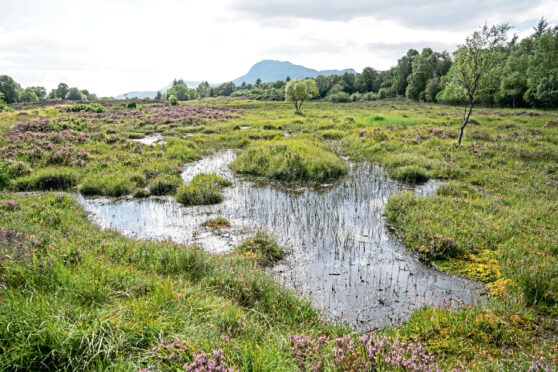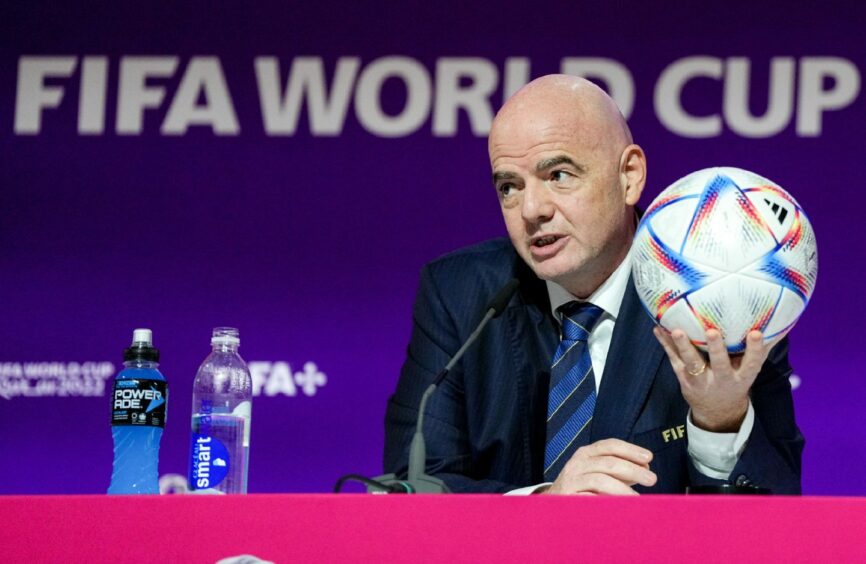Sir, – In his letter (Vested interests of sporting estates have failed our moorlands: P&J November 16) I would suggest, before putting pen to paper, Colin Young should get his facts correct.
In his letter Mr Young states, burning, tree-felling, overstocking, and roads have contributed to the spectacular erosion in peatlands.
I find this statement misleading on several accounts.
Where peat restoration is ongoing, the ground is so wet and broken it is impossible to burn heather.
There is no evidence to suggest trees were ever felled and removed in peatlands by sporting estates.
And, as for over- stocking, apart from moss crop in the early spring there is little grazing to attract any herbivore on to peatland.
Whether sporting or otherwise, hill roads play an important part in rural economies and public well-being.
Roads are used by the mountain rescue, ski centres, forestry, and agriculture.
They are used by the fire service when dealing with wildfires, and provide access to wind farms, phone, and TV masts.
And, for those who find the high tops too steep, hill roads are used by the public who want to see Scotland’s wild and remote Highland glens and moorlands.
To claim that hill roads are responsible for damaged peatlands is absurd.
Peter Fraser. Crathie, Ballater.
Bigger issues than stadium need solved
Sir, – Spectacular own goal, says Scott Begbie. It won’t be his hard-earned going into Mr Cormack’s bank account.
The council has much bigger problems to overcome, long before they think of doling out taxpayers’ money on a football stadium.
Their plans for the seafront are just pie in the sky once again.
Tarting up the beach will not help to regenerate the heart of the city. People like the beach just as it is.
Banning cars from there will achieve nothing. Leave well alone!
Bill L, Aberdeen.
‘No’ to AFC a good move
Sir, – Hear, hear to councillors Ian Yuill and Alex Nicoll saying no to Aberdeen Football Club.
It’s the first sensible decision to come out of the council for years.
It’s high time millions of council tax money was stopped being used for harebrained ideas that hardly any of the public require.
I commend you both on your decision. Keep up the good decision-making!
Freda Stephen.
Fifa has a debt to Asian dependents
Sir, – We all read the speech by Gianni Infantino, president of Fifa, a man born in Switzerland to Italian immigrant parents who currently holds dual nationality.
He has risen to the top job in world football, earning a salary of two million Swiss Francs, plus a plethora of perks and privileges, but has the temerity to write to the football associations of participating countries in the Word Cup instructing them to advise their players and staff to focus fully on football instead of politics.
Two days from the start of the competition he gave a rambling press conference totally contradicting his previous missive.
We should be reminded of his predecessor, Sepp Blatter, banned from all involvement in football since 2015 due to corruption issues, but who has since stated: “The World Cup should never have been awarded to Qatar”. A bit late in the day for that!
Prior to Blatter’s tenure, the president of Fifa was the Brazilian Joao Havelange who, along with his son took more than £21 million in bribes which was confirmed by Swiss prosecutors.
Havelange’s predecessor was Sir Stanley Rous, an Englishman who held the position of Fifa President from 1961 to 1974 – not a man involved in corruption but a staunch supporter of the apartheid regime in South Africa.
Another recipient of Fifa’s largesse was Chuck Blazer, an executive of the organisation from 1996 to 2013 who took millions in various payments and rented an entire floor at Trump Tower in New York. He had a $6,000-a-month apartment for his cats.
Fifa is registered as a Swiss charity.
It would be nice to think that from the millions they will make from this ludicrous World Cup that they would make donations to the Asian dependents of men who lost their lives building the half-empty stadiums.
John Reid. Regent Court, Keith.
Was paying into a pension worth it?
Sir, – So, Edwin Duncan (Letters, November 21) thinks that pensioners don’t deserve the triple lock increase, and that it should be means-tested.
My wife and I receive the princely sum of £270 per week, compared to the minimum wage which is £400 weekly.
I worked and paid tax from the age of 15 till 72 and also sacrificed holidays, etc., to pay for modest private pensions.
I am now wondering if our sacrifice was worth it, as the small sum disqualifies us from pensioner credit, which in turn stops us from claiming a free TV licence.
Maybe Mr Duncan is in a more privileged situation than me. But in these hard times we need all the help we can get.
Alan McPherson. Grant Street, Cullen.
Sleekit to ask for a leap in the dark
Sir, – Mr Herbert Petrie’s letter of November 18 indicates a degree of both ignorance and gullibility.
His blind faith in Nicola Sturgeon will eventually be shown to have been sadly misplaced. The annual financial figures presented in Government Expenditure and Revenue Scotland (GERS) is a National Statistics publication. It estimates the revenue raised in Scotland.
More critically the claim that “when every Westminster government in our lifetime has knowingly diverted tens of billions of Scottish revenues” is quite simply false.
GERS is an accredited National Statistics document produced by statisticians in the Scottish Government (not the UK Government).
If there was any validity in the claim surely the Scottish Government would be challenging and seeking the return of these revenues? Why did Andrew Wilson and Sustainable Growth Commission take the GERS figures as a starting point?
To quote from the Sustainable Growth Report Para 2.5: “It is important independence must never be seen as a magic wand or quick and easy step to success. Indeed, there is no pot of gold, black or otherwise, at the foot of the independence rainbow.But there is a toolbox and using it will mean taking responsibility for choices that seek to create a stronger economy, sustainable public finances and a fairer society. Independence is a means to those ends, I believe a necessary but not sufficient step to success. The choices that are then made about the country’s strategy and how effectively they are delivered are what will determine success – we are our choices.”
The sad fact is that Ms Sturgeon read the report and decided it sounded like far too much hard work and how could she persuade at least half the population of Scotland to take the pain before they got the gain?
As a sleekit politician she realised her own limitations and is now attempting to persuade us to leap in the dark with de facto independence, ie an illegal attempt.
The Barnett Formula was introduced by a Labour Party politician in the 1970s. Scotland has had a higher level of public spending per person than England ever since.
This essentially locked in this disparity. With independence it will stop.
David Philip. Knockhall Way, Newburgh.


Conversation